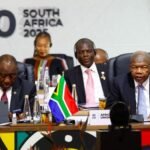The revelation that the Warri Refining and Petrochemical Company shut down barely a month after being declared operational, despite nearly $897 million spent on its refurbishment, raises concerns about transparency and accountability.
Development Diaries reports that since 25 January, 2025, the Warri Refining and Petrochemical Company has been closed because of safety concerns in its crude distillation unit main heater.
This development raises serious concerns about the company’s operational integrity, accountability, and capacity to manage the nation’s critical oil infrastructure.
That such a major facility would be hastily commissioned only to collapse weeks later shows a culture of public deception, inefficiency, and waste.
This incident also undermines public trust in the current administration’s commitment to transparency, especially in a sector that remains central to Nigeria’s economic survival.
Recall that the 125,000 barrels per day capacity Warri refinery, which had been moribund for decades due to technical issues, resumed operations on 30 December, 2024.
Public officials, including the former National Petroleum Company Limited (NNPCL) Group Chief Executive Officer (CEO), Mele Kyari and even President Bola Tinubu, publicly lauded the refinery’s ‘resuscitation’, yet no one has taken responsibility for the facility’s immediate failure.
Nigerians are right to ask, who signed off on this project? What kind of accountability measures were in place? And where exactly did the $897 million go?
Even more alarming is the contradiction between official claims and data from the Nigerian Midstream and Downstream Petroleum Regulatory Authority, which confirms that the refinery has remained shut since January due to unresolved safety issues.
The Port Harcourt refinery’s performance further exposes the systemic failure. While NNPCL announced 70 percent capacity utilisation, regulatory figures show it has been operating at less than 40 percent capacity six months after recommissioning.
These figures reflect a governance failure and a disconnect between public communication and actual performance on the ground.
At a time when Nigeria faces fuel scarcity, rising energy costs, and a struggling economy, these failures are inexcusable. Nigerians deserve better.
Development Diaries calls on the new Group Chief Executive Officer (GCEO) of the NNPCL, Bashir Ojulari to ensure transparency on all refinery rehabilitation projects to rebuild public trust.
Photo source: NNPC Group






